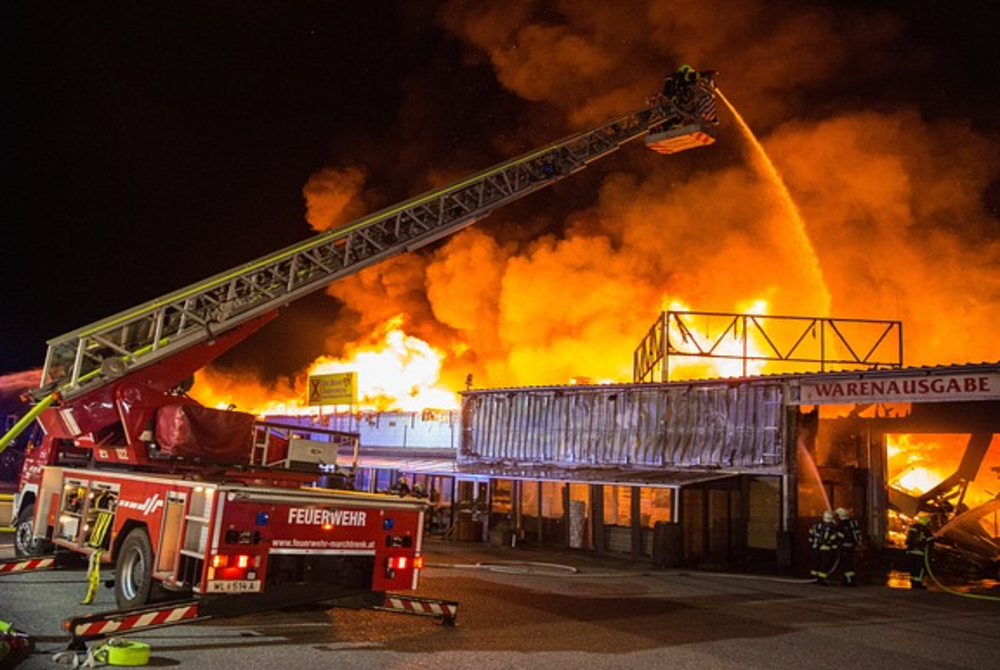Is a person dying of fire regarded a martyr? A scholar explains
AZMA ML
Is it true that dying in a fire is considered a martyrdom?
Former Religious Minister and Federal Territory Mufti Datuk Seri Dr Zulkifli Al-Bakri shed a light on it.
In general, many narrations mention the death of a Muslim associated with martyrdom; one of those is dying due to fire.
From Jabir RA, the Prophet Peace Be Upon Him (PBUH) said, "The martyrs besides those killed on the path of Allah are seven people, victims of a plague, drowning (while traveling for a good purpose); who has a wound in the stomach and dies; dying of a stomach ache, fire victims, those who die in a rubble, and a woman who dies while giving birth." (Hadith Narrated by Abu Daud and al-Nasaie).
Al-Mulla Ali al-Qari revealed that what is meant by "صَاحِبُ الْحَرِيقِ" is a person who burns. In other words, someone who died due to fire.
Imam al-Nawawi suggested that all the seven types of death are considered as martyrdom due to the tremendous pain and agony.
Ibn Hajar al-'Asqalani on the hadiths regarding those who are considered martyrs, said that there are two types of martyrdom in his book:
1) Martyrs in this world and the hereafter are those who were killed while upholding his religion sincerely for Allah and in a state of moving towards instead of running away from the enemy.
2) Martyrs in the afterlife only which are those who shall be given the reward of martyrdom, but after this world. Their bodies still need to be bathed, prayed and all.
3-However, Imam al-Nawawi added a third category: those martyred in this world, but not in the afterlife.
Therefore, someone who died in a fire belongs to the martyrs in the afterlife, but not in this world.
It means that they will receive the reward of martyrdom in the afterlife, but in this world, their bodies still need to be bathed and prayed.
In order to explicitly refer to someone as a martyr, two things need to be considered:
1-General witnessing: Determining martyrdom based on the conditions stated in the Qur'an or hadith of the Prophet (PBUH) such as in the hadith from Jabir above. So it is permitted and even obligatory to accept it as we witness it based on the nature as told by the Messenger of Allah.
2-Specific witnessing: Telling another person that somebody is a martyr such as saying "That person is a martyr." This is not allowed unless the individual was witnessed as a martyr by the Prophet PBUH or the consensus of Muslims.
For this reason, Imam al-Bukhari made a special chapter in Sahih al-Bukhari which is the Prohibition of Saying Someone is a Martyr.
According to Ibn Hajar al-Asqalani in the book Fath al-Bari, the prohibition applies to the act beng done with certainty. It is because in this case, certainty can only be accepted based on revelation.
Therefore, Imam al-Bukhari seems to base this prohibition on the hadith by Umar al-Khattab who in a sermon said, "You say in your wars, "so-and-so is a martyr" and "so-and-so is martyr" when perhaps, that person had died because he was carrying too much loads (hence fell off his ride). Therefore, don't say such a thing. Instead, say what the Prophet PBUH did:
مَنْ مَاتَ فِي سَبِيلِ اللَّهِ أَوْ قُتِلَ فَهُوَ شَهِيدٌ
Meaning: "Whoever died or was killed in the path of Allah, then he had been martyred."
Ibn Hajar rated the hadith as hasan and it was narrated by Imam Ahmad and Sa'id bin Mansur as well as others.
Based on the explanation above, it is clear that Muslims who died in a fire are considered martyrs, as stated in the authentic scripture.
However, the implied martyrdom is the one in the hereafter as in receiving the reward of martyrdom in the afterlife. Their bodies in the world still need to be managed as usual with bath and prayer.
The grant of the martyr title to them was actually awarded by the Prophet PBUH himself based on authentic narration.
However, the fact is that only Allah SWT truly knows whether a person is a martyr or otherwise.
Therefore, do pray for the reward of martyrdom for those who had died in the states of martyrdom as stated by the Prophet PBUH, but do not establish it definitely.










